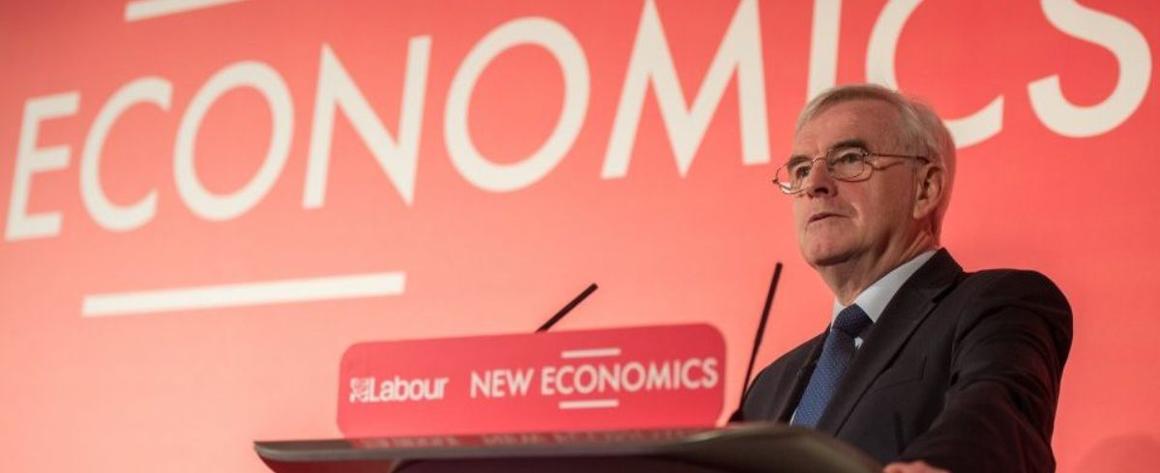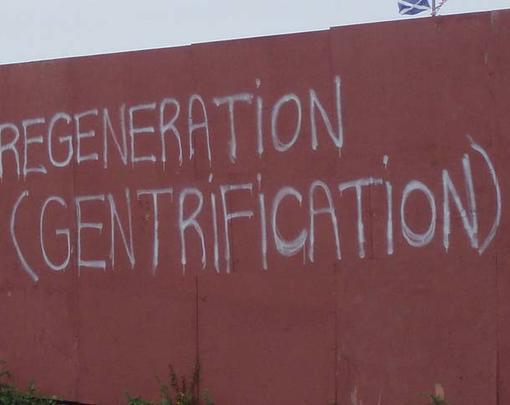The Labour leadership is putting together the elements of a new twenty-first century socialist political economy with a direct focus on ownership, control, democracy, and participation. Rolled out across the entire economy, it could displace traditional corporate and financial power in Britain.
As Shadow Chancellor John McDonnell likes to say, ‘Another world is not just possible, it is within reach’. Largely unnoticed by its enemies within and without, the Corbyn Project is cohering around a programme for transformative change that could form the basis for a new political-economic settlement. Building on popular elements of Labour’s 2017 manifesto, For the Many Not the Few, and encompassing cutting edge thinking from the Alternative Models of Ownership report and beyond, the leadership is assembling the tools and strategies to enable a Labour government to pursue a bold transformation of the British economy organised around ownership, control, democracy, and participation. Rolled out across the whole economy, this could amount to a radical programme for dismantling and displacing corporate and financial power in Britain, constraining and undermining the social and economic basis of the neoliberal order just as Thatcher destroyed her opponents’ strength by liquidating the public sector, shuttering entire industries, smashing the trade unions, and disinvesting in working class communities.
This ‘institutional turn’ in Labour’s thinking under Corbyn is a direct response to the magnitude of the challenges now confronting the country. These deepening problems – wage stagnation, underinvestment, low productivity, widening inequalities of income and wealth, not to mention the looming effects of climate change – are not simply accidental or the result of poor policy choices but the predictable outcomes of the basic organisation of the economy. The institutional arrangements at the heart of today’s British capitalism – concentrated private ownership, corporate dominance, and the overweening might of London-based finance capital – together form a powerful engine for the extraction of value and its distribution upwards. It is this basic institutional design that drives the outcomes we are seeing in terms of crumbling public infrastructure, social atomisation, environmental degradation, and a widespread sense of popular disempowerment. Our current system is programmed not to meet citizens’ needs but rather to steadily concentrate the lion’s share of economic gains in the hands of a small elite. More than half of all wealth in the United Kingdom is now held by the top ten per cent, with around twenty per cent held by the top one per cent, and inequality continues to grow. If we are serious about addressing real economic challenges then we need a different set of institutions and arrangements capable of producing sustainable, lasting, and more democratic outcomes – an economy ‘for the many not the few’.
Remarkably, the Labour Party is now promising to deliver just such fundamental change. Jeremy Corbyn’s leadership has opened up space for a far broader political conversation on the economy than has been possible in decades. ‘Co-operatives, shared ownership, and workplace democracy’, John McDonnell has stated, ‘all have a central role to play here’ – ‘here’ being at the heart of what he terms ‘the new economics’. Corbyn, for his part, has promised ‘decisive action to make finance the servant of industry not the masters of all’ and called for local councils to be given more freedom to run utilities and services in order to ‘roll back the tide of forced privatisation’ and allow communities to shape and secure their economic future. Not since the ’seventies and early ’eighties – when the Party was committed to bringing about what Tony Benn termed ‘a fundamental and irreversible shift in the balance of power and wealth in favour of working people and their families’ – has Labour put forward as bold a plan for the transformation of Britain. Instead of the extractive and concentrating forces of corporate capitalism, the emerging new political economy is circulatory and place-based, decentralising economic power, rebuilding and stabilising regions and local communities, allowing for the possibility of real democracy and participation, and providing the long-run institutional and policy support for a new politics dedicated to achieving genuine social change…
Read the rest of Guinan and O’Neill’s analysis in Renewal





